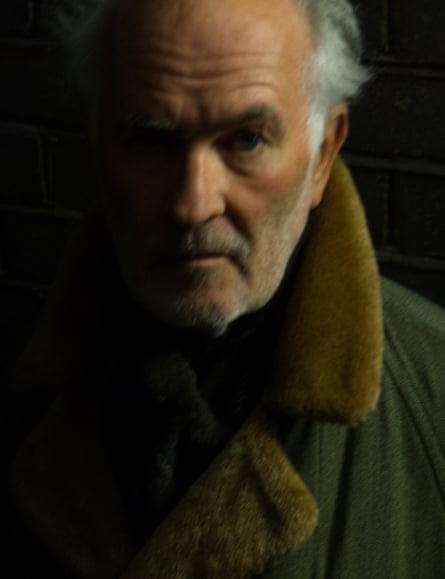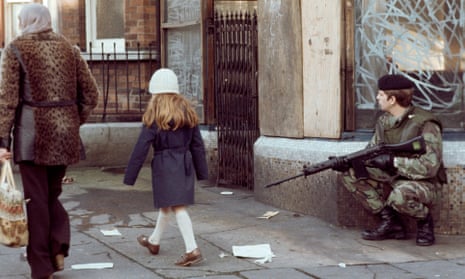In film and writing, noir – not a colour but a vital absence of the same – is nonetheless a necessary hue. The stark radiance of a composition becomes evident only when it lacks distractions of the spectrum and its gaudy splashes of attached sensation, just as a morally abysmal ground makes any human light displayed against it the more brilliant in the narrative.
Chris Petit, as an author, is of a variety that could not have existed prior to the later 20th century and is still exotic – namely someone whose approach to crafting literature commences from a starting point of cinema, where the priorities and processes are very different. Time jumps its sequential tracks and is dismantled, fracturing in the stuck-needle repetition of the retake, shuffled into new chronologies by the demands of shooting schedules, with the semblance of a continuity or plot emerging only in the edit, this being as true of daily news as of a Jason Statham vehicle. Authorial sleights of hand allowed by moving pictures – all that visual background to hide details in; the fleeting blink-and-miss-it nature of the medium itself – cannot be replicated in prose fiction, where there is no background beyond the flat surface of the words, and where those words stay frozen on their paper screen allowing for examination. Text requires its own illusionist’s devices.
Clearly recognising this, it is a testament to Petit’s keen intelligence and versatility that he gains such a lot in the transition from one medium to another, meanwhile forfeiting so little. If he cannot reproduce the stunning coal-and-chromium luminosity of his groundbreaking 1979 B-road vision Radio On, he can still silver streets with moral drizzle and reduce the passing sodium lamps to lens flare, smears of phosphorus as seen through travelling black glass. Adjusting his techniques and strategies to the demands of a new form, his x-ray eye and crystallising gaze are unaffected. And in compensation for the absent lustre formerly supplied by celluloid, there is the rich seam of night language to which the harsh, stuttering neon genre grants him access.

Noir, more of an ethical and atmospheric filter for a story, more an existential colour grade than a collection of venetian-slatted cliches, is a neighbourhood where Petit has considerable previous. His startling 1993 debut novel, Robinson, takes its wrong turn into a backroom in Soho with no postcode, a delirious sump of sour pornography and sudden Stanley-knife redundancy announcements. It is haunted by the beret-sporting skull of premature cadaver writer Derek Raymond, on loan from his own brutal Factory novels or else leaked through from his Ivan Albright cameo in Petit’s film The Cardinal and the Corpse. The queasy bad-dream ambience of Robinson is soaked up from the district’s gutters with their residue of Francis Bacon’s screaming abdabs and Thomas De Quincey’s opiated yearnings, yet the novel is only a first excursion into the displaced director’s chosen territory. With his second foray into darkness, The Psalm Killer in 1997, he presents noir of a different colour, having new agendas and extended reach; exchanging the steep, reeling gradients south of Oxford Street for the tight-knotted intestinal maze of Belfast, and trading a toxic hallucinogenic rush for the unwanted clarity of hangover, withdrawal, comedown.
If in Robinson we see the author’s first engagement with this tarry, viscous genre – an examination of its shapes and textures, an initial handling to test its weight – then in The Psalm Killer we see Petit putting noir to use as a specialised instrument for a specific purpose, making genre a sophisticated tool for talking about something else; perhaps its only serious application. With his narrative placed pointedly against the backdrop of a thoroughly researched and referenced 1980s Northern Ireland, Petit takes the opportunity to look more closely at the psychological and sociopolitical substructure of that place, those times, with fiction as a means of penetrating sealed-off areas of reality where documentary journalism cannot reach. Given that noir is, glaringly, the only mode of fiction that’s appropriate to or capable of navigating intractable moral black spots like the Belfast of that period, this serious investigative usage might be looked on as almost an obligation of the genre, though it’s rarely put to such a purpose.

In The Psalm Killer, that obligation is resoundingly fulfilled. Unflinchingly, the novel charts a ground of national history sewed with unpalatable truths, buried like landmines or post-abduction bodies, who knows where? The region’s simmering religiosity infects even the names allotted to the tale’s main adversaries, Cross and Candlestick, and in the interstices of the furious plot another story of equivalent atrocity is haltingly unfolded; vectors of betrayal and assassination reaching from the Shankill Road to Downing Street. For all the towering Murnau shadows that it casts upon contemporary events and on the fatal puppet shows of national security, the book unerringly maintains a pin-sharp focus on the fine grain of its characters’ emotional conditions, and through them the scarred and traumatised condition of the landscape they inhabit. Despite its razor insights into the political dimensions of the Northern Irish situation, Petit’s cool, authoritative text insists that we consider the domestic converse of those insights, the commonplace indoor violence and frustration buried in communities, invisible yet both facilitating and informing the widescreen outrages that inevitably come to comprise any conflict’s general public perception – its official tabloid record.
One of The Psalm Killer’s numerous achievements is the seamless continuity it manufactures between the remote, somehow fictitious world of headlines and the visceral, immediate human realities that underpin that world. As somebody alive during that era, I remember – or think I remember – being on my way through the Westminster area back in 1979, a London jaunt when on the outskirts of my subsequent career. Crossing a road, halfway between one trivial non-observation and the next, the sound of something massive stifling a sneeze – perhaps a nearby demolition – barely registered; the detonation only unpacked and part-comprehended later on with the assistance of the evening news. Whereas the customary scenery and set-dressings of noir, like any other genre, seem to suggest realms contrived entirely for the furtherance of a requisite atmosphere, Petit’s uncomfortable and mesmerising thriller manages to never step beyond the here-and-now reality shared by the author and his audience. Would that it did, and that its monsters and their implications were thus easier to dismiss, to wave away like the remaining Marlboro and bourbon fug left over from a spittle-flecked Mike Hammer rant, rather than listed as established facts in the work’s useful and unsettling glossary.
And yet for all the ways it manages to transcend genre or to extend genre’s remit into ominous new areas, The Psalm Killer remains at its black, beating heart a piece of classic, textbook modern noir, presenting all the elements that are expected of the form but with changed lighting, altered meanings. That great standby of recent detective yarns, the serial killer – an acceptable Grand Guignol gothic horror for a rational age – is here depicted against the relentless violence and attrition of interminable conflict, noisy background that breaks up the outline of the predator just as effectively as first world war dazzle camouflage: we know it’s there, but we can’t tell how fast it’s moving or in which direction. The clearly delineated psychopathic murderer is only a peacetime phenomenon. Placed in a context of sectarian combat, this contemporary bogeyman means something different and is saying something new.
Then there are Petit’s women, women being as much a staple of the genre as its volatile, hair-trigger butchers, and once more we find that in the pages of The Psalm Killer its female presences are put to other ends and have another function, anchoring the chiefly male-driven chaos of the narrative in vivid, tactile human consequence. With inner lives as full and complex as (if more self-comprehended than) their male counterparts, they hover a pragmatic pace back from the bloody business and wait their moment. Subjects and not objects, they have agency, possess their own momentum, and are spared the adjectival fondling to which noir not infrequently subjects its dames, broads and tomatoes. By the novel’s end, our mental snapshot of WPC Westerby amounts to little more than a blonde with a hairstyle reminiscent of the way that women wore their hair in 1950s films, and yet we’re troubled by our sense of being her. Never McGuffins of desire, the women of The Psalm Killer aren’t there to ogle, but to keep an eye on.
In this searing and extraordinary book, Petit has served up a perfectly judged piece of Northern Irish blackness, as compelling and nerve-shredding as anything this seam of fiction has to offer. Simultaneously he has modified that midnight genre, making it a vehicle for speculative social and political investigation, while retaining all the pain and rain and furious energy. The Psalm Killer turns an unblinking eye on the unmentionable wound, the damage in our national past and likely future, to reveal streets meaner and goodbyes far more protracted, if they come at all. Open this gripping tour de force and, like its title character, diffuse into the Belfast of three decades ago like blood blossoming in water. History as unsolved homicide, the damp and dread of Petit’s harrowing account will never leave you. An abysmal triumph.
The Psalm Killer by Chris Petit will be published as a Picador Classic this month. The Butchers of Berlin by Petit is published by Simon & Schuster. To order a copy of The Pslam Killer for £6.99 (RRP £8.99) go to bookshop.theguardian.com or call 0330 333 6846. Free UK p&p over £10, online orders only. Phone orders min p&p of £1.99.

Comments (…)
Sign in or create your Guardian account to join the discussion